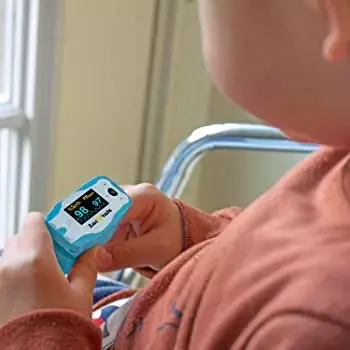- Home
- Medical news & Guidelines
- Anesthesiology
- Cardiology and CTVS
- Critical Care
- Dentistry
- Dermatology
- Diabetes and Endocrinology
- ENT
- Gastroenterology
- Medicine
- Nephrology
- Neurology
- Obstretics-Gynaecology
- Oncology
- Ophthalmology
- Orthopaedics
- Pediatrics-Neonatology
- Psychiatry
- Pulmonology
- Radiology
- Surgery
- Urology
- Laboratory Medicine
- Diet
- Nursing
- Paramedical
- Physiotherapy
- Health news
- Fact Check
- Bone Health Fact Check
- Brain Health Fact Check
- Cancer Related Fact Check
- Child Care Fact Check
- Dental and oral health fact check
- Diabetes and metabolic health fact check
- Diet and Nutrition Fact Check
- Eye and ENT Care Fact Check
- Fitness fact check
- Gut health fact check
- Heart health fact check
- Kidney health fact check
- Medical education fact check
- Men's health fact check
- Respiratory fact check
- Skin and hair care fact check
- Vaccine and Immunization fact check
- Women's health fact check
- AYUSH
- State News
- Andaman and Nicobar Islands
- Andhra Pradesh
- Arunachal Pradesh
- Assam
- Bihar
- Chandigarh
- Chattisgarh
- Dadra and Nagar Haveli
- Daman and Diu
- Delhi
- Goa
- Gujarat
- Haryana
- Himachal Pradesh
- Jammu & Kashmir
- Jharkhand
- Karnataka
- Kerala
- Ladakh
- Lakshadweep
- Madhya Pradesh
- Maharashtra
- Manipur
- Meghalaya
- Mizoram
- Nagaland
- Odisha
- Puducherry
- Punjab
- Rajasthan
- Sikkim
- Tamil Nadu
- Telangana
- Tripura
- Uttar Pradesh
- Uttrakhand
- West Bengal
- Medical Education
- Industry
Pulse Oximeters Overestimate Oxygen Saturation in people with Darker Skin Tone: Study

Pulse oximetry is commonly used to measures oxygen levels in the blood non-invasively. However, concerns have arisen regarding its reliability in individuals with darker skin tones. A recent review published in the British Journal of Anaesthesia explored the accuracy of pulse oximeters in estimating arterial oxygen saturation (SaO2) across different skin tones.
This comprehensive review encompassed a total of 44 studies and over 222,000 participants and found that pulse oximeters tended to overestimate SaO2 in individuals with darker skin tones. While the majority of studies reported this bias, a few indicated no significant inaccuracy related to skin tone.
Despite the extensive data sieved through, meta-analysis could not be conducted due to the considerable heterogeneity in study design and reporting metrics. Importantly, only a quarter of the studies measured skin tone directly, while the others relied on participant ethnicity, with approximately 31% of participants being of non-White ethnicity or having non-light skin tones. The review emphasized the importance of recognizing this bias in pulse oximetry that can overestimate true SaO2 in people with darker skin tones.
This finding raises critical concerns in medical scenarios where accurate oxygen saturation readings are paramount for the management of the patients. While the exact impact of this bias on clinical outcomes requires further investigation, the awareness of its existence is crucial for healthcare providers.
The study illuminates the need for improved diversity and inclusion to address disparities in healthcare outcomes across different demographic groups. The outcomes prompt healthcare professionals to remain cautious and consider the potential inaccuracies when interpreting oxygen saturation readings, particularly in patients with darker skin tones.
Source:
Martin, D., Johns, C., Sorrell, L., Healy, E., Phull, M., Olusanya, S., Peters, M., & Fabes, J. (2024). Effect of skin tone on the accuracy of the estimation of arterial oxygen saturation by pulse oximetry: a systematic review. In British Journal of Anaesthesia. Elsevier BV. https://doi.org/10.1016/j.bja.2024.01.023
Neuroscience Masters graduate
Jacinthlyn Sylvia, a Neuroscience Master's graduate from Chennai has worked extensively in deciphering the neurobiology of cognition and motor control in aging. She also has spread-out exposure to Neurosurgery from her Bachelor’s. She is currently involved in active Neuro-Oncology research. She is an upcoming neuroscientist with a fiery passion for writing. Her news cover at Medical Dialogues feature recent discoveries and updates from the healthcare and biomedical research fields. She can be reached at editorial@medicaldialogues.in
Dr Kamal Kant Kohli-MBBS, DTCD- a chest specialist with more than 30 years of practice and a flair for writing clinical articles, Dr Kamal Kant Kohli joined Medical Dialogues as a Chief Editor of Medical News. Besides writing articles, as an editor, he proofreads and verifies all the medical content published on Medical Dialogues including those coming from journals, studies,medical conferences,guidelines etc. Email: drkohli@medicaldialogues.in. Contact no. 011-43720751


